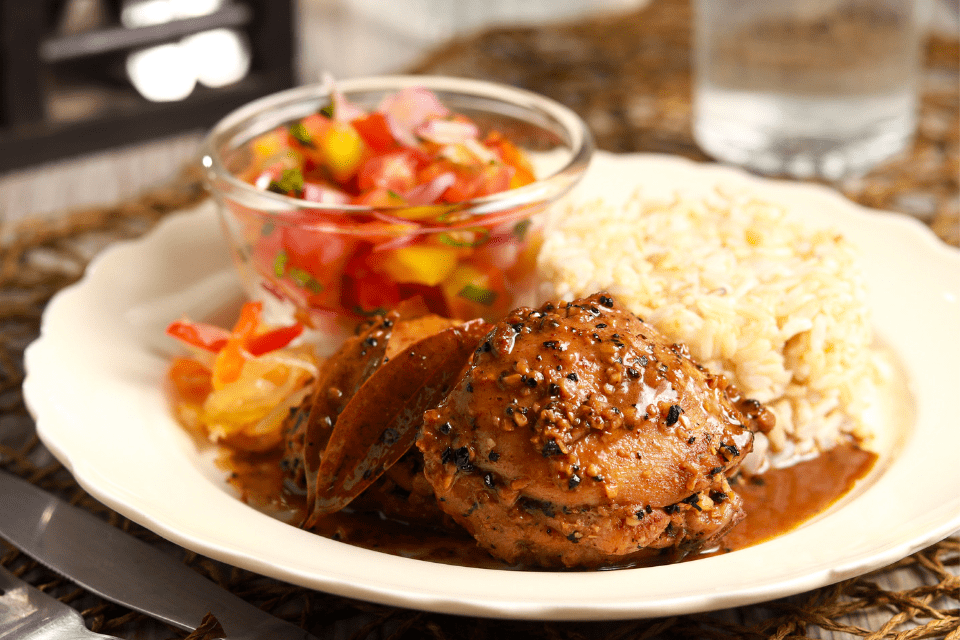When marrying a Filipina, you can expect a strong, loving, and traditional partner. Filipino culture places a strong emphasis on family, loyalty, and respect. You may also find that your partner has a strong Catholic faith and values traditional gender roles. You may also experience cultural differences in communication, problem-solving, and decision-making. Be wise, respectful, and willing to learn about your partner’s culture, and you’ll have a successful and happy relationship.
The emphasis on family and community is a crucial component of Filipino culture. Your Filipina partner may have close relationships with their extended family, and they may expect to keep in touch with them on a regular basis and involve them in important life events. It is also common for multiple generations to live under the same roof.
Filipinos also value loyalty and respect in relationships. Your Filipina wife may expect you to be faithful and committed to the relationship and to show respect for them and their family.
Regarding communication, Filipinos may be more indirect in their approach and use nonverbal cues, such as tone of voice and facial expressions, to convey their meaning. They may also avoid confrontation and be hesitant to express disagreement or criticism.
Regarding problem-solving and decision-making, Filipino culture values collectivism over individualism, meaning that the group’s welfare is more important than individual needs.
It’s also worth noting that many Filipinos are Catholic and may have strong religious beliefs, influencing their views on specific topics such as marriage, family planning, and sexual relationships.
Remember that these are generalizations and that every person is unique, so it’s best to have honest conversations with your partner to understand their perspectives and values.
Generalizations aside, let’s answer some questions on what to expect when marrying a Filipina.

What Kind of Sexual Relationship Will My Filipina Wife and I Have?
Traditional values and religious beliefs in Filipino culture often shape views on sexual relationships. Virginity is often highly valued, and premarital sex is generally frowned upon. However, it’s worth noting that attitudes toward sex and sexuality can vary widely among different individuals and communities within the Philippines.
In a marriage, it’s common for couples to be monogamous and to have sexual relationships only within the context of marriage. Communicate with your partner about your views on sex and sexual intimacy and respect their beliefs and boundaries.
Note that contraception and family planning are widely available in the Philippines and that many Filipinos use modern methods of contraception to plan their families.
Be deferent of your Filipina partner’s beliefs and values, and communicate plainly and candidly about your expectations and desires in a sexual relationship.

How are We Going to Raise Our Children?
Child rearing is an integral aspect of Filipino culture, and family is highly valued in the Philippines. It is common for parents to be very involved in the upbringing of their children and to have high expectations for their children’s education and development.
Filipino parents often place a strong emphasis on discipline and respect for authority. Children are often expected to be obedient and respect their parents and elders. They are also taught to be responsible, hardworking, and independent.
It’s also common for Filipino families to involve extended family members in the upbringing of children, and grandparents and other relatives may play a significant role in the child’s life.
Many Filipino parents emphasize academic success, and many families make significant sacrifices to ensure their children receive a good education.
Take into account that these are generalizations, and that child-rearing practices may differ depending on the individual family and community. Communicate your views on child-rearing with your partner and collaborate to create a plan that works for you and your family.

Does the Saying “The Way to a Man’s Heart is Through His Stomach” Apply to My Filipina Partner?
Filipino cuisine is a fusion of various cultural influences, including Malay, Spanish, Chinese, and American. The most popular dishes include adobo, sinigang, lechon, and pancit.
Adobo is a dish made from meat (usually chicken or pork) that is marinated in a mixture of soy sauce, vinegar, garlic, and bay leaves, then simmered until tender. Sinigang is a sour soup made with meat or seafood, and vegetables. Lechon is a whole roasted pig, a popular dish served on special occasions. Pancit is a type of noodle dish that can be made with various ingredients such as meat, seafood, and vegetables.
Filipino cuisine also includes a lot of seafood and fish dishes, as well as a wide variety of fruits and vegetables. Rice is a staple food that is commonly served with every meal.
Filipino cuisine contains a lot of sodium, oil, sugar, and fat. Keep this in mind when eating Filipino food to keep your diet balanced and healthy.
Respect your partner’s dietary preferences and customs, and be willing to try new foods and flavors.

What About Our Gender Roles?
In traditional Filipino culture, gender roles are often defined based on societal norms and expectations. Men are often seen as the primary breadwinners and are expected to provide for their families financially, while women are expected to take care of the home and raise the children.
However, it is crucial to recognize that these norms and expectations are evolving and changing, particularly in cities and among younger generations. More and more women are pursuing careers and financial independence, and men are taking on more responsibilities in the home and with child-rearing.
Be cognizant that traditional gender roles may still shape some people’s expectations and behavior in the Philippines. However, it is also important to remember that each individual is unique and has their own set of beliefs, perspectives, and choices.
Have heart-to-heart communication with your partner about your expectations and roles in the relationship, and work together to create a dynamic that works for both of you.

How Will My Wife’s Religion Affect Our Marriage?
The Philippines is a predominantly Catholic country, with about 80% of the population identifying as Catholic. The Catholic Church has significantly influenced Filipino culture and society, shaping many aspects, including views on family, marriage, and sexuality.
Catholicism is deeply ingrained in Filipino culture, and many Filipinos have a strong faith and actively practice their religion. It’s common for families to attend church together and for religious traditions and practices to be an essential part of daily life.
It is worth mentioning, however, that a significant minority of Filipinos practice other religions, such as Protestantism, Islam, and Buddhism. In addition, a growing number of Filipinos identify as non-religious.
Respecting your partner’s religious beliefs and practices, even if they differ from yours, is necessary as a foreigner marrying a Filipina. You can ask your partner to explain their religious beliefs and practices, as well as how they want to raise their children religiously.
Understand that religion is significant in Filipino culture and may have an impact on how your partner thinks and behaves. It’s a good idea to be aware of this and factor it into your relationship.

What About My Filipina Wife’s Extended Family?
In Filipino culture, family is highly valued, and extended family relationships play a significant role in daily life. It’s common for multiple generations to live together under one roof and for extended family members to be involved in raising children and in significant life events such as births, deaths, and weddings.
Extended family members often provide emotional and financial support to one another. They may expect to be included in important decisions and informed of important events and happenings within the family.
Filipinos have close bonds with their parents and grandparents and maintain regular contact with them. Filipinos also have strong ties with their siblings, cousins, aunts and uncles.
As a foreigner marrying a Filipina, you can expect to have a close relationship with your partner’s extended family and to be included in family events and gatherings. Respect your partner’s family and show them respect and loyalty.
Accept and respect the family dynamics, communication styles, and cultural norms of your partner’s family. To establish good relationships and build trust, actively communicate with your partner and their family.

What About Birthdays, Anniversaries, and Holidays?
In Filipino culture, birthdays, anniversaries, and holidays are often celebrated with family and friends. It’s common for families to gather together for meals and celebrations and for gift-giving to be a part of these occasions.
For birthdays, it’s common for families to have a special meal and to give gifts to the birthday person. It’s also common for children to have a birthday party with friends and family.
For anniversaries, couples may exchange gifts and have a special meal together. It’s common for couples to renew their wedding vows on milestone anniversaries.
For holidays, it’s common for families to gather together for meals and celebrations. Christmas is a significant holiday in the Philippines, and it’s celebrated with family gatherings, church services, and festive decorations.
It’s also vital to communicate with your partner genuinely and honestly and to discuss the expectations and communication styles that work best for you. When expressing your thoughts and feelings, communicate clearly, be direct and be honest.

How Will My Wife’s Superstitions and Other Traditional Beliefs Affect Our Union?
Filipino culture is rich with superstitions and traditional beliefs, a mix of indigenous, Spanish, and Chinese influences. These beliefs can be related to health and well-being, relationships, and daily life.
For example, some Filipinos believe in the power of good luck charms and amulets to bring good fortune and protect against bad luck. Filipinos also commonly believe in the power of specific numbers or colors to bring good luck.
Regarding health and well-being, some Filipinos believe in the power of traditional healing practices, such as herbal medicine, massage, and faith healing.
In terms of relationships, some Filipinos believe that specific actions or events can influence the outcome of a relationship, such as not cutting your hair or nails on certain days of the week to prevent bad luck in your love life.
In daily life, some Filipinos may also have traditional beliefs about certain practices or customs, such as not pointing their feet at someone or not eating in front of an open window.
Respect your partner’s traditional beliefs and superstitions and understand that these may shape their behavior and decision-making. It’s good to talk candidly with your partner about their beliefs and to learn more about them, but it’s also important not to mock or make fun of these traditions.

Who Does Domestic Chores? Who Handles the Housework?
In traditional Filipino culture, domestic chores are often considered the responsibility of women. However, it’s worth noting that these norms and expectations are changing, especially in urban areas and among younger generations.
Filipino women are typically expected to handle household tasks such as cooking, cleaning, and laundry, whereas men are frequently expected to provide financially for the family. However, more and more Filipino women are pursuing careers and financial independence, while men are taking on more domestic and child-rearing responsibilities.
It is critical to recognize that traditional gender roles continue to shape the expectations and behavior of some people in the Philippines. However, it is also important to remember that each individual is unique and has their own set of beliefs, perspectives, and choices.
It is crucial in a relationship to have genuine and honest communication about domestic chores and responsibilities, as well as to collaborate to create a dynamic that works for both partners. To ensure that both partners feel satisfied and respected, it is critical to consider each other’s workload, interests, and capabilities and to establish a fair division of domestic chores.

How Will My Philippine Wife Handle Money?
In Filipino culture, men are often seen as the primary breadwinners and expected to provide financially for their families. However, more and more Filipino women are pursuing careers and financial independence, and men are taking on more responsibilities in the home and with child-rearing.
Have genuine and sincere communication about money in your relationship. Set clear and attainable financial goals and work together to achieve them. Create a budget, stick to it, and ensure that both partners are aware of the financial situation and are involved in decision-making.
Consider each other’s spending habits and make sure both partners are happy with how money is spent. Both partners must respect each other’s financial decisions and have a sense of financial security.
Remember that the cost of living in the Philippines is lower than in many other countries, which may influence how you and your partner approach money and spending. It is essential to consider the cultural differences and find a solution that works for both of you.

What’s My Filipino Wife’s Communication Style?
Filipinos may have a different communication style than what foreigners are used to. They may be more indirect in their approach and use nonverbal cues, such as tone of voice and facial expressions, to convey meaning. They may also avoid confrontation and be hesitant to express disagreement or criticism.
Due to the strong emphasis on maintaining harmony and avoiding conflict, Filipinos may be more likely to use indirect or polite language, even when expressing disagreement or criticism.
Keep these cultural differences in communication styles in mind, and be patient when interpreting what your partner says. It’s also important to remember that nonverbal cues like tone of voice and facial expressions can be just as important as words in understanding what’s being said.
It’s also vital to communicate with your partner genuinely and honestly and to discuss the expectations and communication styles that work best for you. When expressing your thoughts and feelings, communicate clearly, be direct and be honest.

How Will My Filipina Missis Deal with Stress?
It is difficult to predict how any individual will react to stress because it varies greatly from person to person. Filipina women, on the other hand, are known for their resilience and resourcefulness, and many may cope with stress through their strong support networks and religious or spiritual beliefs.
Stress coping mechanisms can vary significantly among individuals and may be influenced by cultural factors. However, some everyday stress coping strategies that Filipinas may use include:
- Talking to friends and family: social support can be an essential buffer against stress.
- Practicing religion or spirituality: many Filipinos have strong religious or spiritual beliefs and may turn to prayer or religious rituals to cope with stress.
- Humor and laughter: Filipinos are known for their ability to find humor in difficult situations, and laughter can be a great stress reliever.

How Much Alone Time Does My Filipina Wife Need?
Keep in mind that everyone’s needs and preferences for alone time differ. Some people may require more alone time to recharge and feel refreshed than others, whereas others may prefer to be around others more frequently. Communicate with your wife and inquire about her demand for alone time. Respect her needs and boundaries. Finding a balance in your relationship that works for both of you is absolutely essential.
Like all individuals, Filipina women may need alone time to recharge and take care of themselves. Everyone needs some time to be alone, in order to reflect, relax, and engage in self-care activities. Being alone can help to reduce stress and improve overall well-being. And less stressed spouses may be better partners in terms of emotional availability, communication, and patience
It is worth noting however, that Filipinas, like many other cultures, value close relationships and social connections. They may also tend to be collectivistic in nature, which means they tend to prioritize the needs of the group over their individual needs. Therefore, some Filipina women may find it harder to seek alone time than others, as they may feel guilty for neglecting their responsibilities to the group, specifically, you.

What Will My Filipina Wife and I Do for Fun?
You and your Filipina wife can enjoy many different entertainment options together. Some popular activities in the Philippines include:
- Beach activities: The Philippines is known for its beautiful beaches and many opportunities for swimming, snorkeling, diving, and other water sports. Popular beach destinations include Boracay, Palawan, and Cebu.
- Island hopping: The Philippines is made up of thousands of islands, so island hopping is a great way to explore the country and see different beaches and landscapes.
- Adventure activities: The Philippines offers a variety of adventure activities, such as hiking, zip-lining, rock climbing, and caving. The famous Chocolate Hills of Bohol, the Mayon volcano, Mt. Pinatubo, and the rice terraces of Banaue are famous for these activities.
- Food and Nightlife: Philippines offers a diverse food scene, from street food to high-end restaurants. The country is also known for its nightlife, with many bars, clubs, and live music venues. Metro Manila, Cebu, and Boracay are some of the best places to experience this.
- Culture and Heritage: Philippines has a rich history and culture, and there are many opportunities to learn about and experience this. Visiting historical sites such as Intramuros in Manila, the Ifugao Rice Terraces, and the Banaue Rice Terraces are great ways to immerse yourself in the culture.
- Festivals: Philippines is also known for its colorful festivals, such as Sinulog Festival in Cebu, Ati-Atihan Festival in Aklan, and the Kadayawan Festival in Davao. These festivals are a great way to experience the country’s vibrant culture and traditions.

What About Owning Property in the Philippines?
As a foreigner, you are allowed to own property in the Philippines, but there are some restrictions and limitations that you should be aware of. Foreigners cannot own land in the Philippines but can own condominiums, apartments, and houses. They can also lease land for up to 50 years, with the possibility of one renewal of 25 years.
Consult a lawyer and a real estate agent experienced in handling foreign property transactions to ensure that the property is legally sound and that all necessary documentation is in order.
Know the local laws and regulations governing property ownership, taxes, and fees, and be conscious of the country’s economic and political situation, as this can affect the value of the property.
Be aware that the property market in the Philippines may differ from that of other countries, and it is critical to conduct research and be aware of local market conditions. And, owning property in a foreign country can have tax implications, so confer with a tax professional to understand the potential tax consequences.

How Can I Make My Filipina Wife Happy?
Here are a few suggestions for making your Filipina spouse happy:
- Show her love and affection through words and actions.
- Listen to her and communicate effectively.
- Show interest in her culture and family.
- Be supportive of her goals and aspirations.
- Help out with household chores and responsibilities.
- Show appreciation for the things she does for you and your family.
- Plan special dates and surprise her with thoughtful gestures.
- Show respect and trust in your relationship.
Remember that every individual is unique and what makes one person happy may not work for another, so it’s critical to communicate sincerely and honestly with your Filipina spouse to understand their needs and preferences.
Make her feel appreciated and valued.



